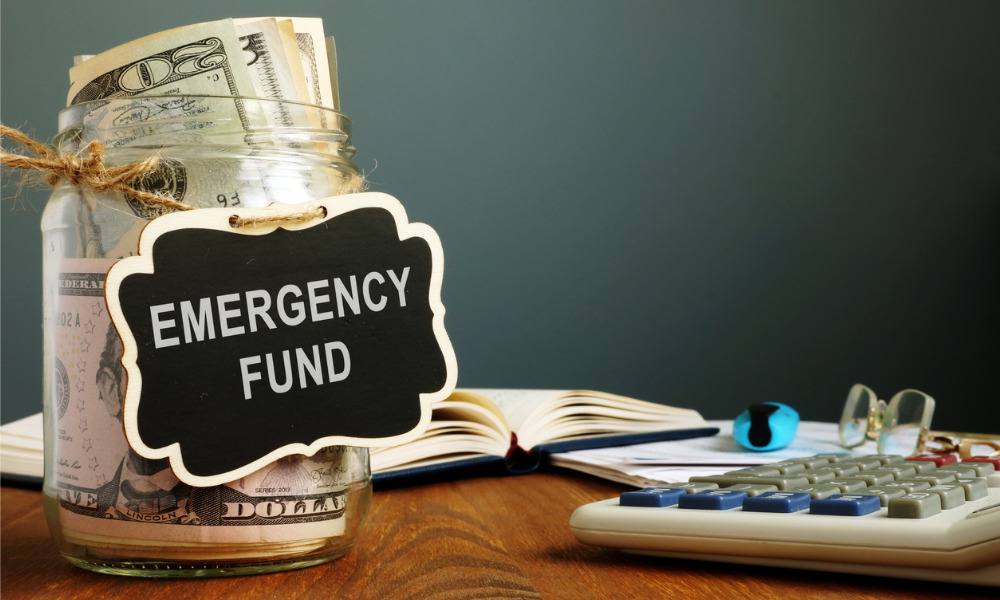The Importance of Emergency Funds: How to Start Saving Today
In this fast-paced world, unexpected events and emergencies can throw our lives off balance. Whether it’s a medical emergency, a sudden job loss, or a major home repair, having a financial safety net can provide immense relief. That’s where the importance of emergency funds comes into play. In this comprehensive guide, we will explain why having an emergency fund is crucial and how you can start saving for one today.
Why Are Emergency Funds Important?
When facing unexpected expenses, having an emergency fund can make all the difference. Here are key reasons why building an emergency fund should be a priority:
1. Financial Security: An emergency fund offers financial security during times of crisis. It provides a cushion to fall back on, reducing stress and anxiety.
2. Peace of Mind: Knowing you have funds readily available in case of an emergency allows you to focus on resolving the issue at hand, rather than worrying about how to cover the costs.
3. Avoiding Debt: Without an emergency fund, many people resort to borrowing money or using credit cards when faced with unexpected expenses. This can lead to accumulating high-interest debt that is difficult to pay off.
4. Flexibility: Having a dedicated emergency fund gives you the flexibility to handle any unforeseen circumstances without disrupting your long-term financial goals.
5. Protecting Your Assets: By having an emergency fund, you can protect your existing assets, such as retirement savings or investments, from being depleted during a financial crisis.
How Much Should You Save in an Emergency Fund?
The ideal amount to save in your emergency fund depends on various factors, including your monthly expenses, lifestyle, and risk tolerance. Financial experts generally recommend saving three to six months’ worth of living expenses as a starting point. This amount should be able to cover necessary expenses like rent or mortgage, utilities, food, and healthcare.
However, for those with higher income or more financial responsibilities, such as a family or dependents, saving at least six to twelve months’ worth of living expenses may be more appropriate. This extended safety net accounts for potential longer-term situations, such as job loss or a serious illness.
How to Start Saving for an Emergency Fund
Starting an emergency fund may seem overwhelming, but with a clear plan and consistent effort, it can be achievable. Here are some actionable steps to help you get started:
1. Set a Goal: Determine your target amount based on your living expenses and financial obligations. Break it down into smaller, attainable milestones.
2. Track Your Expenses: Monitor your monthly spending to identify areas where you can cut back. Analyze your budget and prioritize saving for emergencies.
3. Create a Separate Account: Open a separate bank account specifically for your emergency fund. Keeping it separate from your regular checking or savings account will help you avoid spending it on non-emergency expenses.
4. Automate Savings: Set up automatic transfers from your paycheck or main account into the emergency fund. By doing this, you ensure consistent contributions without the temptation to spend the money elsewhere.
5. Reduce Unnecessary Expenses: Evaluate your lifestyle and identify areas where you can reduce unnecessary spending. Cutting back on non-essential items or services can accelerate your emergency fund savings.
6. Increase Income: Consider finding additional sources of income, whether through a side job, freelancing, or exploring passive income streams. Supplementing your existing income will speed up the savings process.
7. Prioritize Debt Repayment: If you have high-interest debt, such as credit cards or personal loans, focus on paying them off as quickly as possible. The interest charges can eat away at your emergency savings if left unchecked.
8. Stay Committed: Building an emergency fund is a long-term commitment. Stay disciplined, avoid impulsive spending, and celebrate milestones along the way to stay motivated.
The Benefits of Having an Emergency Fund
Beyond the obvious benefits mentioned earlier, having an emergency fund impacts more than just your financial security. Here are some additional advantages that come with a well-funded emergency fund:
1. Opportunity to Invest: Once you have established a solid emergency fund, you can explore investment opportunities that have the potential to grow your wealth over time.
2. Better Financial Decision-Making: Knowing you have a safety net can help you make better financial decisions, as you are not forced into hasty choices due to urgency or desperation.
3. Mental and Emotional Well-being: Financial stability and preparedness contribute to overall mental and emotional well-being. A well-funded emergency fund provides a safety net, reducing stress and anxiety.
4. Teaching Responsibility: Building an emergency fund also teaches valuable financial skills, such as budgeting, saving, and setting goals. It instills responsibility and discipline in managing your money effectively.
In conclusion, the importance of emergency funds cannot be overstated. Taking the necessary steps to establish a well-funded emergency fund is a vital aspect of financial planning. By following the steps outlined in this guide and making saving a priority, you can protect yourself and your loved ones from the unpredictability of life’s emergencies. Start saving today and pave the way to a more secure future.
